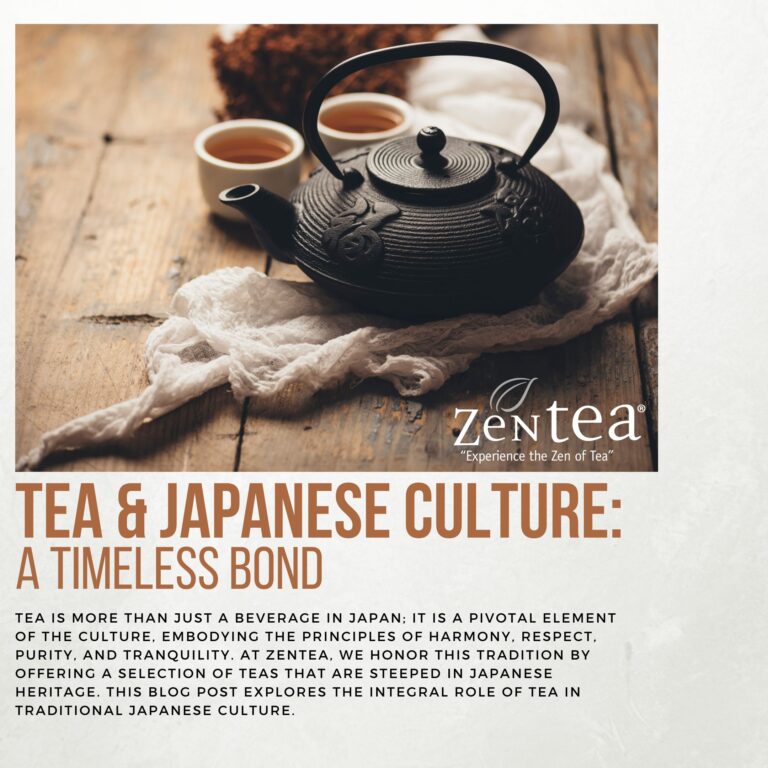Tea & Japanese Culture: A Timeless Bond – ZenTea
The Connection Between Tea and Traditional Japanese Culture
Tea is more than just a beverage in Japan; it is a pivotal element of the culture, embodying the principles of harmony, respect, purity, and tranquility. At ZenTea in Chamblee, GA, we honor this tradition by offering a selection of teas that are steeped in Japanese heritage, available at ZenTea. This blog post explores the integral role of tea in traditional Japanese culture and how it continues to influence practices today.

Related posts
“Mastering the Art of Brewing the Perfect Cup of Tea”
Brewing Perfection: Discover the Art of Tea at ZenTea in Chamblee, GA In the heart of Chamblee, GA,
Tea and Mental Clarity: Unleashing Focus and Productivity with ZenTea
Unlock Mental Clarity with ZenTea: Boost Focus and Productivity Naturally In the fast-paced world we
Green Tea: A Deep Dive into Its Health Benefits
Green Tea Benefits: Unlocking Wellness Secrets – ZenTeaCo.com In our quest for health and vita
Herbal Teas: Unveiling the Mystique of Their Historical Origins
Herbal Teas: Tracing the Roots of an Ancient Tradition The story of herbal teas is as rich and varie
